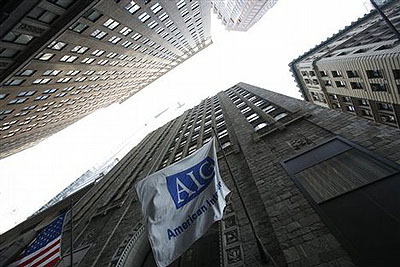 I liked Felix Salmon’s response to an Andrew Ross Sorkin column about whether the Volcker Rule — which is intended to prevent commercial banks from making speculative trades on their own account — will hurt the economy:
I liked Felix Salmon’s response to an Andrew Ross Sorkin column about whether the Volcker Rule — which is intended to prevent commercial banks from making speculative trades on their own account — will hurt the economy:
If and when prop trading leaves the big banks, those banks will make less money. That’s by design….Insofar as trading takes place outside regulated banks, at hedge funds or small broker-dealers without access to the Fed discount window, some of the profits will simply move there, to small-enough-to-fail institutions.
In other words, there is a list of institutions which will be harmed by the Volcker Rule. Here it is: JP Morgan Chase, Bank of America, Citigroup, Goldman Sachs, Morgan Stanley. These institutions should get smaller. These institutions should be less profitable. There’s no reason to believe that when that happens, the economy as a whole will suffer.
….There’s also the question of whether the Volcker Rule will hurt liquidity, and whether that would be entirely a bad thing….Sorkin worries that it will become “impossible, or at least, impossibly expensive” for banks to warehouse merchandise in the form of securities available for sale. He doesn’t, on the other hand, explain why that’s a bad thing. Why should commercial banks be America’s largest market-makers, with enough clout within Sifma and other industry forums that they can set the broad anti-Volcker agenda? There’s no good ex ante reason why that should be the case, and indeed commercial banks have only truly dominated the market-making world in the past few years, since Goldman Sachs and Morgan Stanley converted after Lehman went bust in 2008.
As Felix says, there are two questions here. First, would a strong implementation of the Volcker Rule hurt big banks? Almost certainly yes. Second, would a strong implementation of the Volcker Rule hurt either the broader financial industry or the economy in general? Almost certainly not. Liquidity is the last refuge of a scoundrel, and arguments that big banks doing lots of prop trading provide the financial markets with the liquidity they need are almost certainly bogus. U.S. financial markets are big enough and active enough that they’ll be awash in liquidity regardless of who’s providing it.
I was never a huge fan of the proposition that we had to break up the big banks. It always struck me as the worst of two worlds: there would be huge practical problems trying to do it, and it wouldn’t really address the core problems of leverage and lousy mortgage regulation that were at the heart of the financial collapse. At the same time, bank size is a problem, and finding ways to reduce bank size organically has always seemed like something well worth pursuing. A strong implementation of the Volcker Rule would at least move us in the right direction.


















